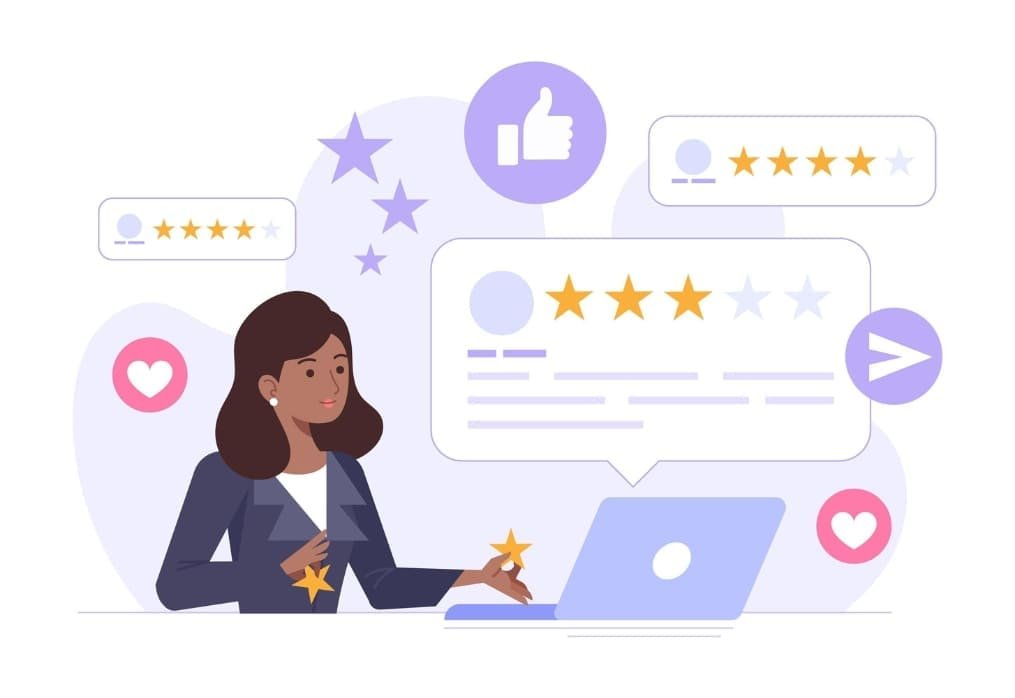How to Use Instagram Hashtags for Business?
In today’s digital age, social media platforms have become crucial tools for businesses to reach their target audience and grow their brand. Among the many social media platforms available, Instagram has emerged as a popular choice for businesses due to its visual appeal and user-friendly interface. However, having an Instagram account is not enough to succeed on the platform. To increase visibility and engagement, businesses need to understand the importance of using Instagram hashtags. Hashtags play a crucial role in making your content discoverable to new audiences and expanding your reach on the platform. Let us explore how to use Instagram hashtags effectively for your business, from choosing the right hashtags to tracking their performance. How to Choose the Right Hashtags? Identifying your target audience One of the key factors in choosing the right hashtags is identifying your target audience. It’s important to understand who your ideal customer is and what type of content they are interested in. This will help you to select relevant hashtags that will attract the attention of your target audience. For example, if you are a fitness brand targeting women, use hashtags such as #fitwomen, #womenfitness, #fitnessmotivation, and so on. Researching popular hashtags in your industry Another important aspect of choosing the right hashtags is researching the popular hashtags in your industry. This will help you understand the trends and topics relevant to your industry and will allow you to create content that resonates with your audience. You can use Instagram’s search function to find popular hashtags related to your industry. You can also use third-party tools such as Hashtagify, Tagboard, or RiteTag to research popular hashtags. Using branded hashtags Branded hashtags are a great way to create a sense of community around your brand and to encourage user-generated content. Branded hashtags are unique to your brand and are used to promote your brand on Instagram. For example, Nike uses #justdoit as their branded hashtag. You can use your brand name or a catchy tagline as your branded hashtag. Make sure to promote your branded hashtag on your Instagram profile and other marketing channels to encourage your followers to use it in their posts. To choose the right hashtags for your business, you need to identify your target audience, research popular hashtags in your industry, and use branded hashtags. You can create content that resonates with your audience, increase your visibility on Instagram, and grow your brand. How to Use Hashtags Effectively? Don’t use too many hashtags While using hashtags can help increase visibility on Instagram, using too many hashtags can be counterproductive. Instagram allows a maximum of 30 hashtags per post, but using all 30 hashtags can make your post look spammy and may reduce engagement. Instead, try using a smaller number of relevant hashtags to attract your target audience. The optimal number of hashtags varies by industry and account size, but a good rule of thumb is to use 5-10 hashtags per post. Place hashtags strategically in your captions or comments When using hashtags, it’s important to place them strategically in your captions or comments. Some Instagram users prefer to include hashtags within the caption, while others prefer to include them in a separate comment. There is no hard and fast rule, but it’s important to make sure that your hashtags are visible and easily discoverable. You can also use line breaks or emojis to separate your hashtags from your caption and make them more visually appealing. Use a mix of popular and niche hashtags Using a mix of popular and niche hashtags is an effective way to increase visibility on Instagram. Popular hashtags have a high search volume and can help you reach a wider audience, while niche hashtags are more specific and can help you target a more relevant audience. To find niche hashtags, consider using long-tail keywords or location-based hashtags. For example, if you are a restaurant in New York, use hashtags such as #nycfoodie, #newyorkeats, or #nycrestaurants. To use hashtags effectively on Instagram, it’s important to avoid using too many hashtags, place hashtags strategically in your captions or comments, and use a mix of popular and niche hashtags. You can increase your visibility on the platform, reach your target audience, and grow your brand. How to Track Hashtag Performance? Using Instagram’s built-in analytics Instagram’s built-in analytics provides a wealth of information about your account and post-performance, including hashtag performance. You need to switch to a business or creator account to access this information. Once you have access to Instagram’s analytics, you can view the number of impressions and reach for each hashtag. You can also see which hashtags drive the most engagement and adjust your hashtag strategy accordingly. Third-party tools for tracking hashtag performance In addition to Instagram’s built-in analytics, several third-party tools can help you track hashtag performance. These tools provide more detailed analytics and insights than Instagram’s native analytics. Some popular third-party tools for tracking hashtag performance include Hootsuite, Sprout Social, and Iconosquare. These tools allow you to track hashtag performance across multiple platforms, compare hashtag performance over time, and identify which hashtags drive the most engagement. When tracking hashtag performance, it is important to measure the impact of your hashtags over time. Hashtag performance can vary depending on the time of day, the day of the week, and even the season. You can identify trends and adjust your hashtag strategy by monitoring your hashtag performance over time. You can use Instagram’s built-in analytics or third-party tools to track hashtag performance on Instagram. Tracking hashtag performance enables you to identify which hashtags are driving the most engagement, adjust your hashtag strategy, and optimize your content for maximum reach and engagement. Common Hashtag Mistakes to Avoid Using irrelevant hashtags Using irrelevant hashtags can hurt your Instagram performance and make you look spammy. It is important to use hashtags that are relevant to your content and target audience. Avoid using hashtags just because they are popular, especially if they have nothing to do with your content. Instagram’s algorithm
How to Use Instagram Hashtags for Business? Read More »







